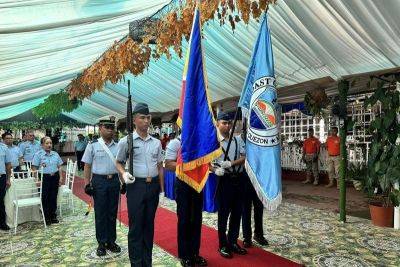Simbang Gabi: It’s the mass, not the time
MANILA, Philippines — With the start of the Simbang Gabi or dawn masses on Saturday, Lingayen-Dagupan Archbishop Socrates Villegas reminded the Catholic faithful that the most important component of the nine-day novena masses is the mass itself and not the “time of the mass.”
“With focus on the essentials, let us remember that the most important component of Simbang Gabi is not the ‘time’ in which it is celebrated but the participation at ‘mass.’ The key word is ‘simba,’ not ‘gabi.’ The indispensable part of this nine-day pre-Christmas tradition is the Eucharist,” Archbishop Villegas explained in a catechesis.
He added that aside from attending the nine-day masses, it would be preferable if the Catholic faithful would receive Holy Communion in preparation for Christmas that commemorates the Birth of Christ.
The traditional nine-day Simbang Gabi, or the Misa de Gallo (Mass of the Rooster), in the country begins on Dec. 16 and would end on Dec. 24, while the anticipated mass would start on Dec. 15 until Dec. 23.
Villegas also explained that the nine-day masses was an “indult or privilege granted by the Holy See to celebrate nine votive masses of the Virgin Mary at dawn prior to Christmas in order to thank God for the gift of Catholic faith and intercede for its preservation in the Philippines. They were called ‘Aguinaldo Masses’ in reference to this gift of faith.”
The curfew hours introduced during the martial law years in the 1970s, where citizens were prohibited from roaming the streets from midnight until 4 a.m., gave birth to the anticipated masses.
“The political situation at that time gave rise also to the wider understanding that the more important component of Simbang Gabi is not the time of dawn but the mass,” he added.
If the mass is celebrated at daytime, he said it is celebrated without the Gloria with advent purple vestments and advent hymns.
When it is celebrated at dawn, it is celebrated with Gloria with white vestments and festive liturgical hymns.
“No matter the time of day or night, it is the Lord who comes at every mass to speak in the Liturgy of the Word and to feed us with His Body and Blood from the Eucharistic table,” he added.
The early







